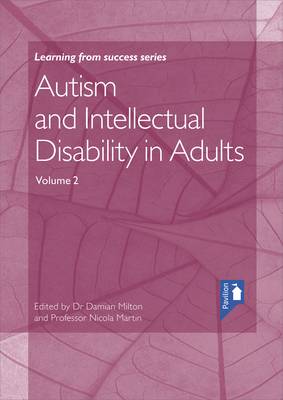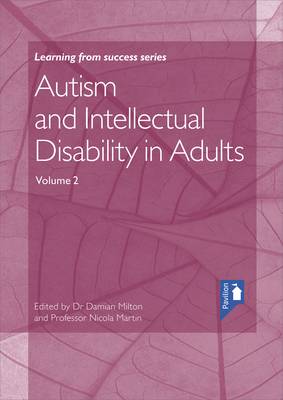
- Afhalen na 1 uur in een winkel met voorraad
- Gratis thuislevering in België vanaf € 30
- Ruim aanbod met 7 miljoen producten
- Afhalen na 1 uur in een winkel met voorraad
- Gratis thuislevering in België vanaf € 30
- Ruim aanbod met 7 miljoen producten
Zoeken
Autism and Intellectual Disability in Adults Volume 2
Volume 2
Damian Milton, Nicola Martin
Paperback | Engels
€ 54,95
+ 109 punten
Omschrijving
Autism and Intellectual Disability in Adults: Volume 2 explores issues and practice affecting the support of adults with intellectual disabilities who are on the autism spectrum. This volume explores potential key moments in the lives of adults with intellectual disabilities who are on the autism spectrum, covering a breadth of subjects. In this second volume, there is a substantial focus on autistic people with intellectual impairments who come into contact with the criminal justice system, with three chapters on this topic. Other topics include employment, autism and intellectual impairment in old age, mental health, housing, and the transforming care agenda. We have also included a number of chapters on our continuing theme of participatory research and practice. This volume has been brought to you by a highly creative group of people, many of whom are either on the autism spectrum or have close family ties to autistic people. The focus of this series is not on the causes of autism; our interest instead lies in considering ways in which autistic people (focusing here on those with additional intellectual impairments) can have the best possible quality of life, on their own terms. Common themes emerge between authors, including the fundamental requirement to acknowledge, respect and facilitate autistic expertise as being central to the production of research, policy and practice. Autism and Intellectual Disability in Adults: Volume 2 will inform and benefit health, social care, and education professionals, families, students, support staff in learning disability services and many others. The annual shares information, tools and resources in ways that are accessible, useful and usable by the broad range of professional groups involved in this area of practice.
Specificaties
Betrokkenen
- Auteur(s):
- Uitgeverij:
Inhoud
- Aantal bladzijden:
- 90
- Taal:
- Engels
Eigenschappen
- Productcode (EAN):
- 9781911028673
- Verschijningsdatum:
- 1/11/2017
- Uitvoering:
- Paperback
- Formaat:
- Trade paperback (VS)
- Afmetingen:
- 178 mm x 241 mm
- Gewicht:
- 353 g

Alleen bij Standaard Boekhandel
+ 109 punten op je klantenkaart van Standaard Boekhandel
Beoordelingen
We publiceren alleen reviews die voldoen aan de voorwaarden voor reviews. Bekijk onze voorwaarden voor reviews.











